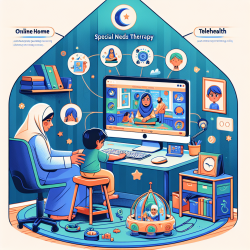Introduction: Bridging Education and Healthcare
In the evolving landscape of education, particularly in fields as dynamic as medical education, the concept of programmatic assessment has emerged as a transformative approach. The research paper "What programmatic assessment in medical education can learn from healthcare" offers profound insights into how educational assessments can be enriched by drawing parallels with healthcare practices. This blog explores these insights and encourages practitioners to enhance their skills by integrating these principles into their educational frameworks.
Understanding Programmatic Assessment
Programmatic assessment is a holistic approach that continuously gathers information about a learner's competence and progress. Unlike traditional assessment models that rely heavily on high-stakes testing, programmatic assessment focuses on continuous feedback and development. This method is akin to the ongoing monitoring and treatment processes in healthcare, where patient care is continuously adjusted based on feedback and outcomes.
Key Analogies Between Healthcare and Programmatic Assessment
- Defining Competence and Health: Both concepts are challenging to define but can be evaluated and improved. Just as healthcare professionals diagnose and treat 'ill-health,' educators can diagnose and address 'dyscompetence' through comprehensive assessments.
- Beyond Structured Testing: In healthcare, relying solely on lab values for diagnosis is insufficient. Similarly, in education, a blend of qualitative and quantitative assessments provides a more comprehensive view of a learner's abilities.
- Therapeutic Assessment: Diagnosing a patient is only the first step; treatment must follow. In education, assessments should not only identify areas of improvement but also guide learners towards targeted remediation and growth.
- Gestalt Diagnosis: Just as clinicians use a holistic view to diagnose patients, educators should use comprehensive assessments to understand a learner's competence, rather than relying solely on checklists.
- Developing Expertise: Both healthcare and educational assessment systems rely on expert practitioners. Continuous professional development and nurturing of assessment expertise are crucial for effective programmatic assessment.
Implementing Programmatic Assessment in Education
For educators, the transition to programmatic assessment involves a shift in mindset. It requires embracing a culture of continuous feedback and development, much like the patient-centered approach in healthcare. Here are some steps to consider:
- Engage in Continuous Learning: Attend conferences, webinars, and workshops to stay updated on the latest assessment strategies.
- Foster a Feedback Culture: Encourage open dialogue between learners and educators to facilitate continuous improvement.
- Utilize Diverse Assessment Tools: Incorporate a mix of assessment types to capture a comprehensive picture of learner competence.
- Invest in Professional Development: Develop assessment literacy among educators to enhance the reliability and validity of assessments.
Conclusion: A Call to Action
By drawing inspiration from healthcare, educators can transform their assessment practices to better support learner development. Programmatic assessment offers a pathway to more meaningful and effective educational outcomes. Practitioners are encouraged to delve deeper into this approach and explore its potential to revolutionize their educational practices.
To read the original research paper, please follow this link: What programmatic assessment in medical education can learn from healthcare.










